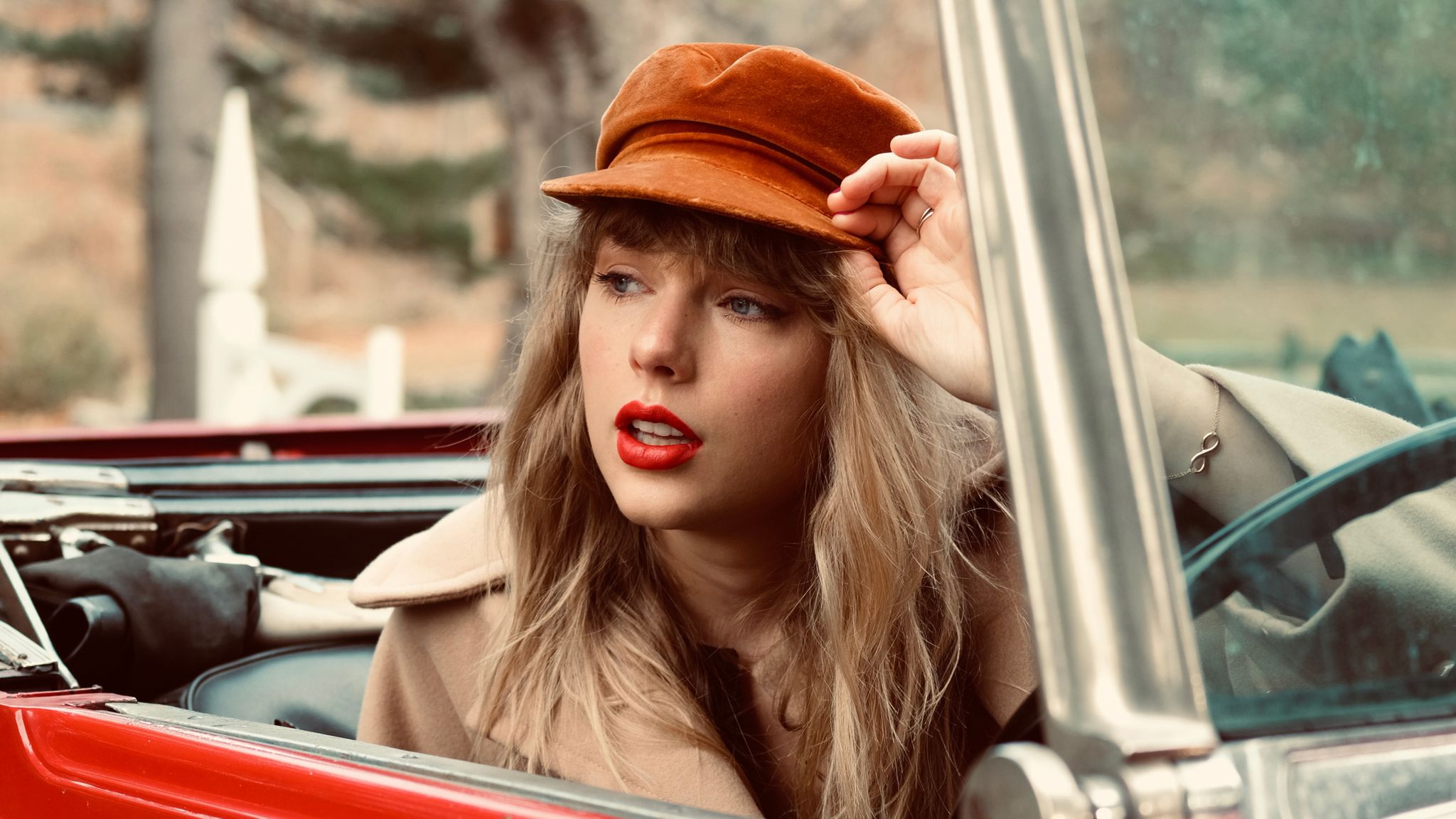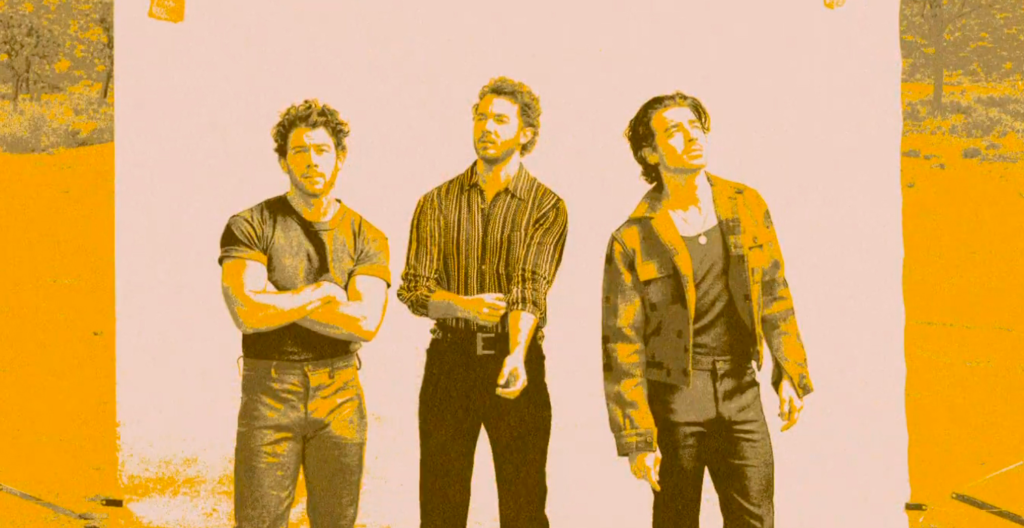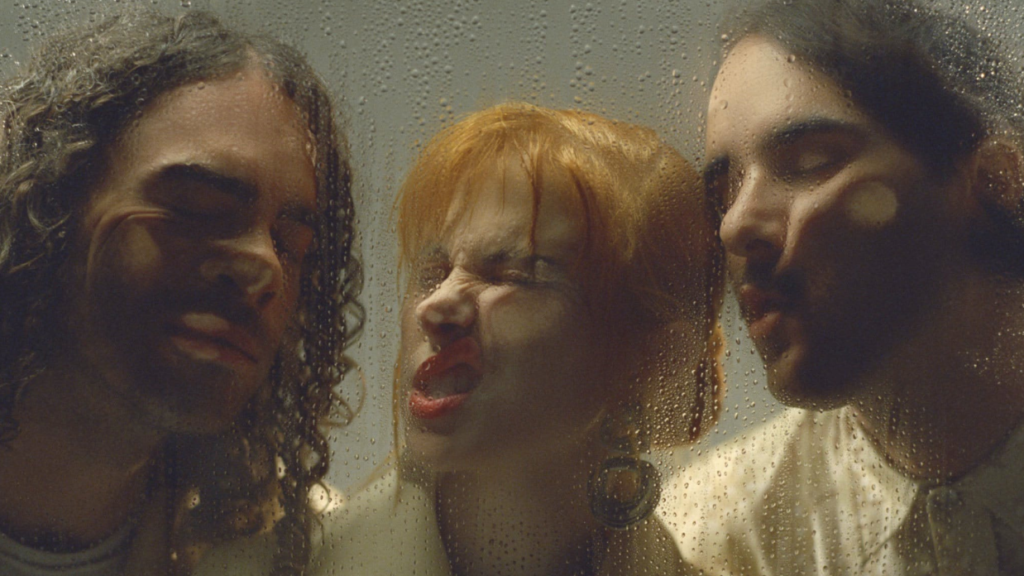RED CAN definitely be considered the career-defining album of Taylor Swift’s discography. Defeating the critics’ allegations that she would only ever succeed as a country musician, Swift managed to sing a different tune with the pop and rock sensibilities of numbers like “We Are Never Ever Getting Back Together” and “I Knew You Were Trouble.” Though the 2012 album lacks sonic cohesion, it serves as an amalgamation of her various musical styles and songwriting skills as a rising star. Nine years later, Red makes a return in Swift’s pursuit of owning her original work.
Red (Taylor’s Version) succeeds Fearless (Taylor’s Version), which was released in April of this year. The reclamation project involves Swift revisiting her albums under her previous label Big Machine Records and re-releasing them with Universal Music Group. Not wanting to wallow in the loss of her masters to record executive Scooter Braun, Swift has since announced her intention to record her earlier songs—with the addition of shelved tracks that belong to each era.
The much-anticipated re-recording of Red brings a whopping nine tracks out of the vault. Though not technically considered a “from the vault” piece, “Ronan (Taylor’s Version)” kicks off the list of re-recordings. The poignant ballad was originally produced as a charity single and is dedicated to a four-year-old boy of the same name who had passed away due to neuroblastoma. Swift’s touching tribute is an exploration into the unimaginable grief of losing a child, made incredibly heart-wrenching with a bridge referencing abandoned hand-me-downs and quiet miracles.
“Better Man (Taylor’s Version)” strikes in as the second vaulted song, though nothing about its country sensibilities are particularly unfamiliar to fans of the artist. Interestingly enough, Little Big Town was the first to perform “Better Man” after Swift sent the demo to them for their consideration. It claims its rightful place in Red’s final re-recorded tracklist. As the trill of banjos accompany Swift’s simmering bitterness, listeners are left to reckon with the visceral post-break up disappointment of yearning for what could have been.
Coming in as an unexpected gut punch is Swift’s “Nothing New (Taylor’s Version),” featuring the haunting vocals of Phoebe Bridgers. The two do a terrific job of tackling the somber reality of the industry they operate within—waxing it out with enough poetics for any 20-something to believe that the song could be about them, too. “Lord, what will become of me / Once I’ve lost my novelty?” Swift laments, unearthing an unholy fear of only being worth something when you are young and aglow.
“Babe (Taylor’s Version)” seemingly attempts to bandage the damage that has been dealt after the emotional rollercoaster of the first three tracks. Originally performed by Sugarland, the once-shortlisted piece adopts a light-hearted, pop-laced tone vis-à-vis a narrative of infidelity. It’s catchy enough but presents nothing memorable amid the roster of Red (Taylor’s Version).
Similarly, “Message In A Bottle (Taylor’s Version)” is an electropop number that might amuse fans of Swift’s 1989 era. Saccharine and danceable, the track’s uptempo beats mesh well with its sprightly hooks. Though, again, the track feels rather forgettable in the grand scheme of Swift’s discography.
In “I Bet You Think About Me (Taylor’s Version),” Swift returns to her country roots at full-force with Chris Stapleton providing twanging harmonies. The Blake Lively-directed music video is representative of everything the song stands for: Red-hot spitefulness for holier-than-thou ex-lovers.
The subsequent “Forever Winter (Taylor’s Version)” is surprisingly deceptive but easily a personal favorite. Backed with warm melodies and bright horn arrangements, the track’s verses weave a desperate tale of reaching for a loved one who is hurting behind closed doors. “If I was standing there in your apartment / I’d take that bomb in your head and disarm it,” she earnestly sings in the bridge. “I’d say I love you even at your darkest.”
Admittedly, the last stretch doesn’t leave as much of an impact as the preceding sections. Swift’s duet with Ed Sheeran on “Run (Taylor’s Version)” is a touch simplistic if not reminiscent of their earlier collaboration on the same album. “The Very First Night (Taylor’s Version)” is infectiously jumpy with saccharine lyricism and a polished production from start to finish.
Closing Red (Taylor’s Version) is the supposed cherry on top: A 10-minute version of cult-favorite “All Too Well.” Highly regarded as one of Swift’s most beloved tracks, the re-recorded “All Too Well (10 Minute Version) (Taylor’s Version)” features three fresh verses and a repurposed outro.
Some lines are glaringly specific, from ‘fuck the patriarchy’ key chains to lovers who were Swift’s age at the time of writing. There are even subtle references to previous songs—such as an allusion to “The Moment I Knew” in verse four. Though there are certain portions where the outro lacks vigor and the verses feel disingenuous, it’s difficult to deny Swift of the cultural impact that “All Too Well” leaves in its wake.
It’s difficult to deny her any credit, it seems, as the vaulted tracks of Red (Taylor’s Version) breathe new life into an undeniably iconic album. As we all anxiously await which of her albums will be next, it’s easy to answer the question that Swift poses in her remade “All Too Well” outro: “Just between us, do you remember it all too well?”
The very fans who once enthusiastically listened to the 2012 version of Red are all grown-up now but still relish in the emotions that Swift masterfully crafts into each classic or vaulted song. Which is to say: We were there, Taylor, and we remember it all.






